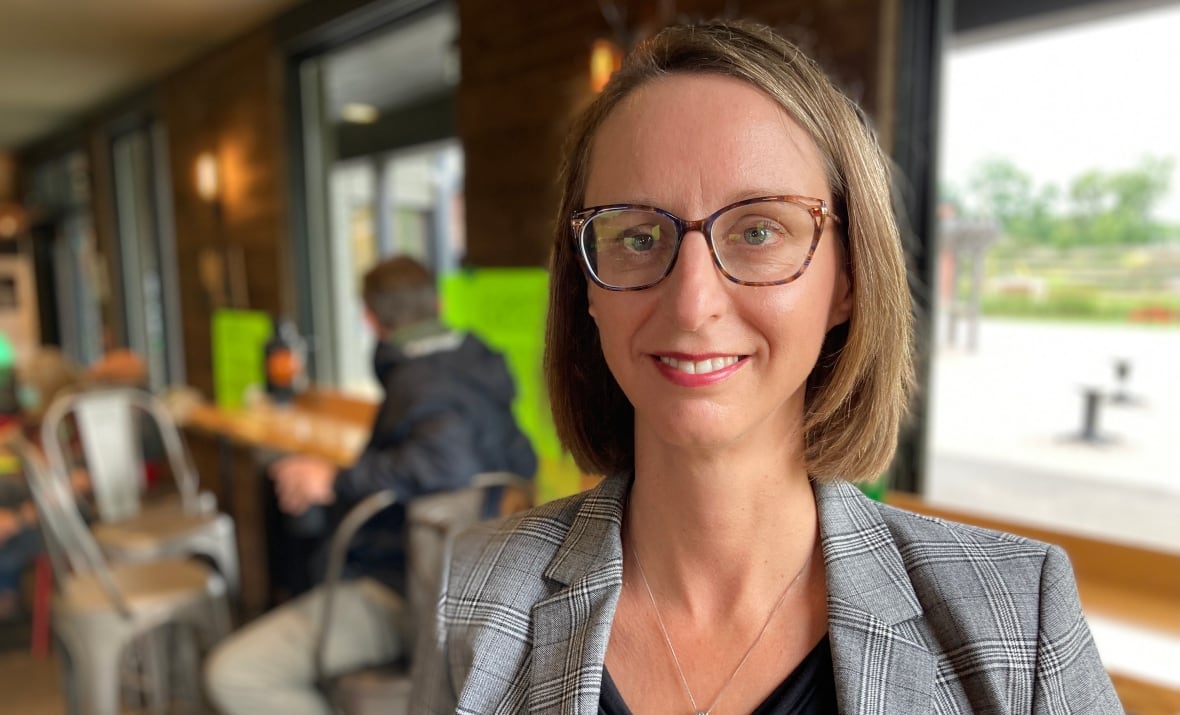UNB law prof warns academics to avoid U.S. border where due process 'is on life support'
Prof turned away at border twice says he won’t return until political situation changes

Nathan Kalman-Lamb writes about U.S. college football, and he travels to the U.S. often for work.
But the University of New Brunswick sociology professor and author says he won't go back.
In January, he was denied entry — without explanation — when trying to board a flight from Montreal to Washington for an event for his new book.
He later obtained a formal visa by undergoing a vetting process by the State Department and the Department of Homeland Security and tried again two months later.
This time he was detained and questioned for three hours and eventually missed his flight.
"They rigorously searched all my belongings," Kalman-Lamb said.
"They unfurled every sock. They flipped through every page of my book. They went through every item in my wallet."
His experience comes as no surprise to Nicole O'Byrne, who has been fielding a lot of calls about similar concerns since Donald Trump became U.S. president and started going after universities and his critics.
She's an associate professor at the University of New Brunswick Faculty of Law, and president of the Canadian Law and Society Association, which meets twice a year to discuss legal issues of interest.

The association's next event is scheduled for June in Saskatoon. O'Byrne has been flooded with inquiries from Canadians living in the U.S., who are nervous about attending in person. She has been advising them to join remotely instead.
Academics staying in Canada
O'Byrne said other members who were scheduled to give presentations at the American Law and Society Association conference in Chicago this month, have requested to present at the Canadian conference instead — for a number of reasons.
"Some of their academic work is now deemed to be quite controversial, especially the work with respect to diversity and inclusion," O'Byrne said. "We have a lot of professors who are transgender or LGBTQ, and they were worried about passport issues crossing the border.
"People are very worried about their social media accounts. The arrest of grad students in the United States has definitely worried the graduate students in our organization, many of whom are going to school in the U.S."
She is advising people to not take any unnecessary risks when it comes to border services, whether it be the U.S. or Canada.

"You're kind of in a Charter-free zone," she said. "You really have no rights in a border area. What we're used to with respect to due process, with respect to warrants, whether or not you have the right to be free from unreasonable search and seizure — that does not apply at borders."
She said there are border services agents acting more and more with impunity, and travellers have no clear avenues of redress if their rights are violated.
"Our constitutional protections take a long time to build, and as we're seeing in the United States, not that long to destroy," she said. "So if the rule of law is not already dead in the United States, it's definitely on life support."
Flagged because of 'critical comments'
Kalman-Lamb said border agents asked him questions about his views on violent protests, if he had travelled to Israel, or any of a dozen Muslim countries. The agent then took his phone and searched through it for an hour, causing him to miss his flight.
The UNB professor was eventually released and cleared for travel but given no guarantee the same thing wouldn't happen again the next time.
These travel-related detentions and denials are becoming a common complaint among academics trying to attend conferences and events in the U.S., and are why the Canadian Association of University Teachers has been advising them against all non-essential travel to the United States.
Last month, it advised its 72,000 members to avoid the U.S., especially those from a country experiencing diplomatic tensions with the U.S., or those who have expressed negative opinions about the current administration or its policies, whose work may involve climate change, or those who are transgender.
Kalman-Lamb suspects he was flagged because of his "critical comments about Israel's genocidal campaign in Gaza and my support of the University of Toronto student anti-genocide encampment."
'An enormous collective loss'
Robin Whitaker, the president of the Canadian Association of University Teachers, said all of this has been "extremely unsettling."
Some universities are now providing faculty with burner phones when they travel to the U.S., she said, to keep their data secure.

Whitaker said this is unprecedented, disturbing and an enormous collective loss for the university community.
"We have to see this attack on universities and our knowledge as part of a wider set of attacks on the enabling conditions of democracy itself," she said.
"This is part of pushing back the U.S. administration, seeking to control anyone with the potential to challenge them. We've seen them attacking judges, obviously the free press. All of these are essential to a functioning democracy."
Not going back
Kalman-Lamb said he has recently turned down opportunities to visit Ohio State University and the University of North Carolina, where "college football is a major sport on campus."
It's not a decision he takes lightly and not one without consequences either.
"It's really meaningful for me ethnographically to be in those spaces and experience the culture of college football and big time athletics in those spaces," he said. "And I won't be able to have those opportunities because of this."
"Until the political situation in the United States dramatically changes, I can definitively say that I will not be travelling to the U.S. again."


